According to several paving companies, you should stay off your new asphalt for at least 24 hours and not park a car on it for at least 5 days. If it’s resurfaced asphalt (poured over the old layer), it should be safe to drive on it after only 2-3 hours unless it’s especially humid or especially hot outside.
Typically, it takes 24 hours for fresh asphalt to dry enough for you to walk or drive on it and only 2-3 hours for resurfaced asphalt to dry. However, the exact time may vary depending on weather conditions such as temperature and humidity.
While the general drying timeframe for new asphalt is 24 hours, regional climate variations might necessitate a slightly longer wait in colder zones. In areas with consistent high temperatures, the top layer of your asphalt might seem dry within a few hours, but it’s essential to wait the full recommended time to ensure the layers beneath have also solidified.
Factors Affecting the Dry Time
Here are some factors that affect the drying time of asphalt:
- Weather conditions. Hot and dry weather speeds up the drying process, while cool and damp weather slows it down.
- The thickness of the asphalt layer. A thicker layer takes longer to dry than a thinner one.
- Type of asphalt mix. Different types of asphalt mix have different drying times.
Sometimes, the type of asphalt mix can affect the drying time the most because different mixes have different formulations, which can impact their ability to set and cure. For example, some mixes contain more oil, slowing the drying process.
Other mixes may contain different aggregates that can absorb moisture, slowing the drying time. The drying time can also be influenced by the type and amount of additives used in the mix. Thus, the type of asphalt mix can impact the drying time and affect the final quality of the surface.
It’s important to wait until the asphalt has fully dried before driving or walking on it to avoid damaging the surface.
Cure vs Dry – What’s the difference?
Curing and drying are related but different processes in the production of asphalt.
Drying refers to the process of evaporating excess moisture from the asphalt surface. This process is necessary because moisture can cause the asphalt to crack and deteriorate over time. The drying process typically takes 24-48 hours but can be influenced by weather conditions and other factors.
Curing, on the other hand, refers to allowing the asphalt to harden and develop its full strength over time. The curing process typically takes several weeks to several months, depending on the type of asphalt mix used. During this time, the asphalt continues to harden and become more resistant to damage from weather, traffic, and other factors.
Generally, it takes asphalt about 6-12 months to fully cure and reach its maximum strength and durability. However, the exact time can vary based on factors such as the type of asphalt mix, weather conditions, and the thickness of the asphalt layer. Some mixes may reach full cure in as little as a few weeks, while others may take several months.
So, while drying is a necessary part of the curing process, curing encompasses a longer and more complex process beyond just drying the surface.
When your asphalt is dry, it means it’s open for traffic, but it doesn’t mean it’s fully cured, just that it has hardened enough for the vehicles to drive on it.

How Does Weather Affect Drying Time?
Weather can greatly impact the drying time of the asphalt. Here are some ways that weather can affect the process:
- Temperature. High temperatures speed up the evaporation of moisture from the surface of the asphalt, which can reduce the drying time. On the other hand, low temperatures can slow down the drying process.
- Humidity. High humidity can slow down the drying time of asphalt by preventing moisture from evaporating. Low humidity can speed up the drying time by allowing moisture to evaporate more easily.
- Rain and precipitation. Rain or precipitation can significantly delay the drying time of asphalt, as it adds moisture to the surface. This can also compromise the quality of the final surface.
- Wind. Wind can help speed up the drying process by carrying moisture away from the surface of the asphalt.
Both cold and hot weather will negatively impact your new asphalt.
The best time to pave a driveway is on a dry, low-humidity day with some wind. High humidity prolongs drying time. Extreme heat can soften asphalt and make it difficult to dry and cure, and it is best avoided.
If it’s hot, water the asphalt to temporarily harden it and avoid driving or parking. Cold weather during winter can cause bumps in the pavement and slow down drying.
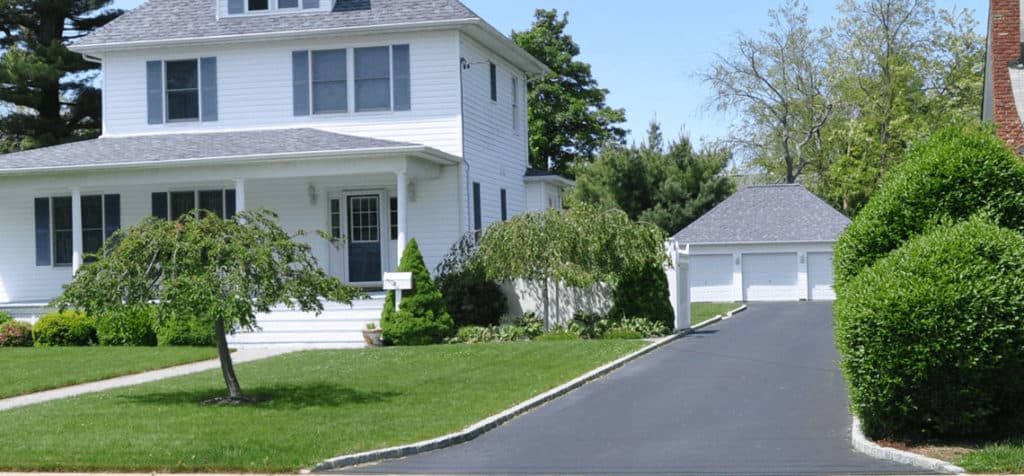
How Soon Can New Asphalt Get Wet?
In general, it’s recommended to allow new asphalt to dry for at least 24-48 hours before exposing it to any significant moisture, with 2-3 days being ideal.
After that, it’s okay for the surface to get wet from rain or other sources, but it’s still important to avoid exposing the surface to heavy rain or standing water until it has fully cured, which can take several weeks to several months.
Rain is not ideal for paving a driveway as it slows down the drying process and can cause damage. Opt for a warm, sunny day with a breeze for paving. Spring or early summer is the best time for paving. If your home and driveway are new, wait 2 years to allow the grade to settle and the base to become established before paving.
If you’re expecting rain shortly after your asphalt is laid, consider rescheduling your paving; rain within the first 24 hours can compromise the surface’s integrity. Even a light drizzle can interfere with the asphalt’s curing process.
Taking Care of Newly Paved Asphalt (what damages it)
To ensure your newly paved asphalt stays in good condition, it’s important to take proper care of it.
To take care of newly paved asphalt, follow these guidelines:
- Wait at least 5 full days before parking your car on it.
- Avoid driving too fast, making quick turns, or turning your wheel back and forth when the car isn’t moving.
- Keep heavy vehicles and sharp, heavy objects away from it.
- Rotate parking spots to avoid parking in the same spot all the time.
- Avoid walking on it in high heels.
- Avoid driving close to the edge of the new asphalt.
- Ensure proper drainage around the surface to prevent damage from water.
- Sealcoat when the damage becomes visible.
Following these guidelines can help keep your newly paved asphalt in good condition for years to come.
The temptation to use your new driveway can be strong, but waiting those critical 5 days for parking can be the difference between a surface that lasts years and one that needs frequent repairs. A freshly laid asphalt driveway is more susceptible to indentations and grooves; by ensuring a minimum of 5 days before regular use, you allow the material to set optimally, providing a smoother finish and prolonging its lifespan.
What is sealing, and when to do it?
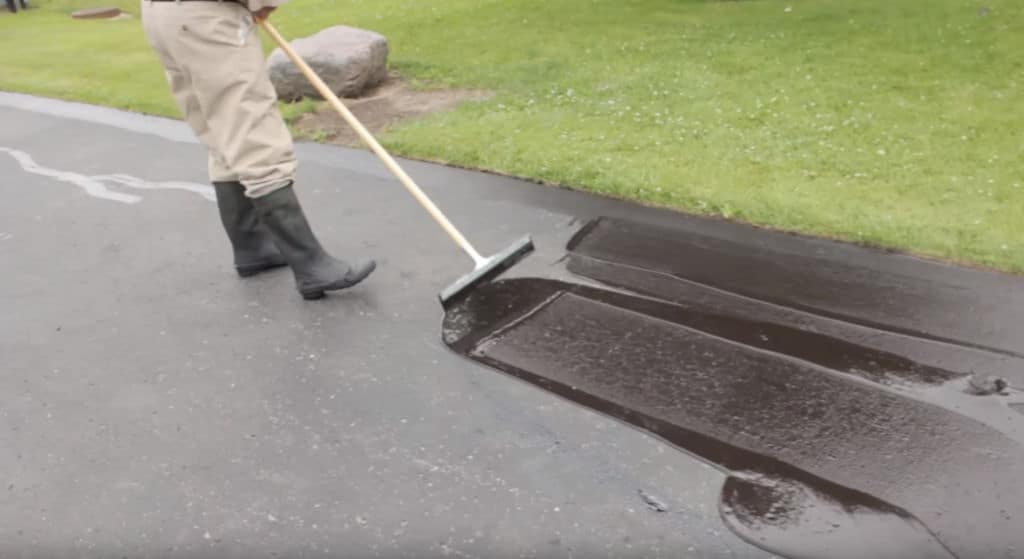
Sealing, sealcoating, or pavement sealing is applying a protective coating to asphalt pavements. Sealing protects asphalt from damage, such as water, oil, and UV exposure.
Asphalt dries out over time. As it dries, it becomes more brittle, and that’s also when cracks begin to appear. This is why new asphalt is dark black and, as it weathers, it turns lighter. The asphalt sealing process will help to keep the asphalt “wet.“
Signs it’s time to seal include:
- your driveway asphalt is cracking in several places
- pavement is rutted or severely broken
- buckled surface, and dents appear
- fading and stains on many places
Generally, it is advised to seal your driveway every 1 to 3 years, depending on the state of your asphalt. It’s unnecessary to overuse the sealer, as it can cause peeling or cracking if it builds up, causing the alligatoring effect.
DIY or Hire a Contractor for Sealing Your Asphalt?
Whether to do it yourself (DIY) or hire a contractor to seal your asphalt depends on various factors, including your skill level, time availability, and budget.
If you are familiar with the process and have the necessary equipment, a DIY sealing job can save you money. However, if you lack experience or have limited time, it is best to hire a contractor with the expertise and equipment to complete the job efficiently and effectively.
Generally, it’s best to hire a contractor to do the sealing for you, as it’s usually inexpensive in most areas. Typically, when you do the calculations, it may be just 20-30% more expensive than DIY. This is a cheap job to have done in most places in the US, and after you buy all supplies and plan on new shoes, you may already be spending more.
It usually costs about a couple hundred dollars to sealcoat your asphalt or have it done by a contractor.
A couple of tips when hiring a contractor to do the sealing: Ask them how they will apply the asphalt sealer. It’s inexpensive to simply spray a thin layer of the sealer onto the driveway, but a much better alternative is a thicker asphalt sealer that needs to be spread with a squeegee. The product you buy at the home store is this thicker, viscous sealer. You will absolutely notice the difference between the two options.
Make sure to pick your contractors carefully. Spending more on a better product will be a good investment to protect your driveway long-term.
How long does it take for the asphalt sealer to dry?
The drying time of asphalt sealer depends on the conditions and thickness of application, with warm, dry conditions allowing for faster drying times of around 1-4 hours and cooler, humid conditions requiring up to 24 hours or more.
The recommended waiting time before using the sealed surface is usually around 12 hours but can be extended to 24-48 hours in extreme weather conditions. Using a thinner sealer layer can also help speed up the drying process.
FAQs
How long does it take for asphalt on the road to dry?
It typically takes 24-48 hours to fully dry and cure newly laid asphalt on roads. However, the drying time may vary depending on environmental conditions such as temperature, humidity, and sunlight. The asphalt may dry faster in warm, dry conditions, while in cool, humid conditions, it may take longer.
Does cold weather make asphalt harden faster?
No, cold weather does not make asphalt harden faster. In fact, cold temperatures can slow down the curing process of asphalt, making it more susceptible to cracking and other forms of damage. Asphalt needs warm and dry conditions to properly cure and harden, typically around 60-70°F.
How do you tell if the asphalt is dry?
You can tell if the asphalt is dry by checking its surface for a glossy appearance and testing it by gently pressing your fingers on it. If it’s dry, the surface will be firm and won’t stick to your fingers. In addition, the surface temperature of the asphalt should be slightly warmer than the air temperature, indicating that the asphalt has completely cured.
What temperature causes asphalt to stop curing?
Asphalt will stop curing at temperatures below approximately 40°F (4°C). At low temperatures, the asphalt binder may not be able to adequately bond with the aggregate and will not cure properly. For optimal curing and long-term durability, it is recommended to install asphalt pavements in warm temperatures between 60°F (15°C) and 90°F (32°C).
Does asphalt dry faster than concrete?
It is not accurate to say that one material dries faster than the other, as the drying time for asphalt and concrete depends on various factors such as temperature, humidity, and the type of mix used. However, it is common for asphalt to cure and become usable faster than concrete, typically within a few days, while concrete may take a week or more to cure.
Credits: alpineasphalt.com for cover photo.



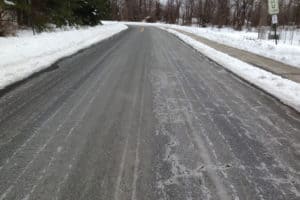

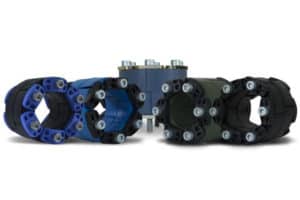
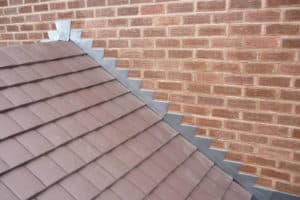
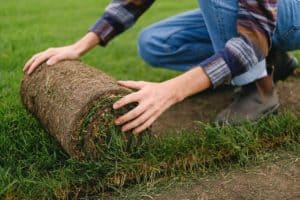


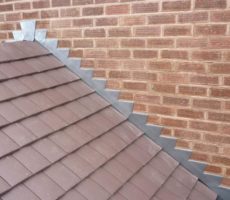
![How Much Do Shipping Containers Cost? [Full Guide]](https://howmonk.com/wp-content/uploads/2020/03/Shipping-Container-retail-shop-230x200.jpg)
